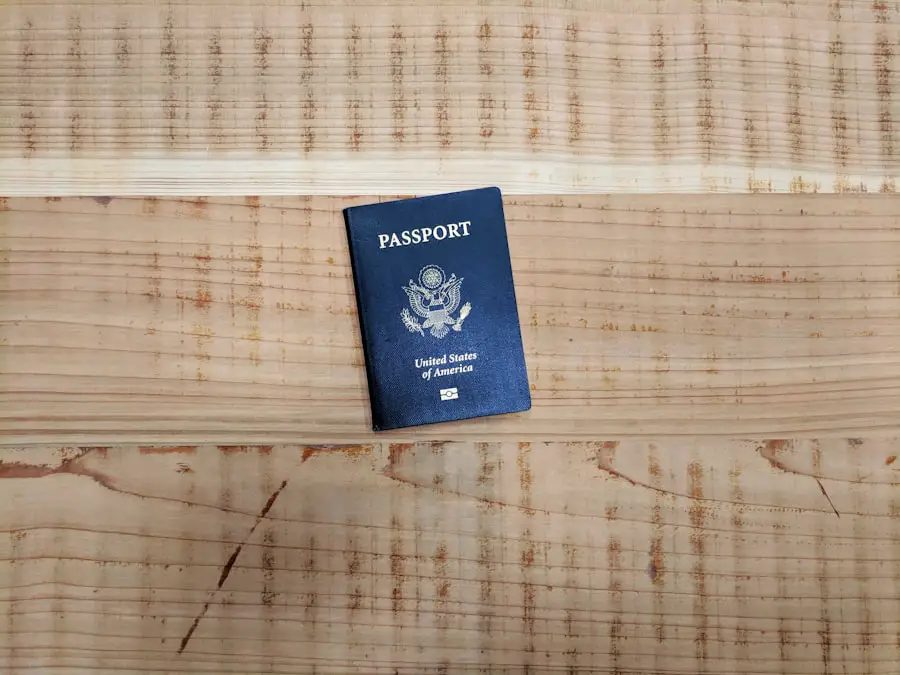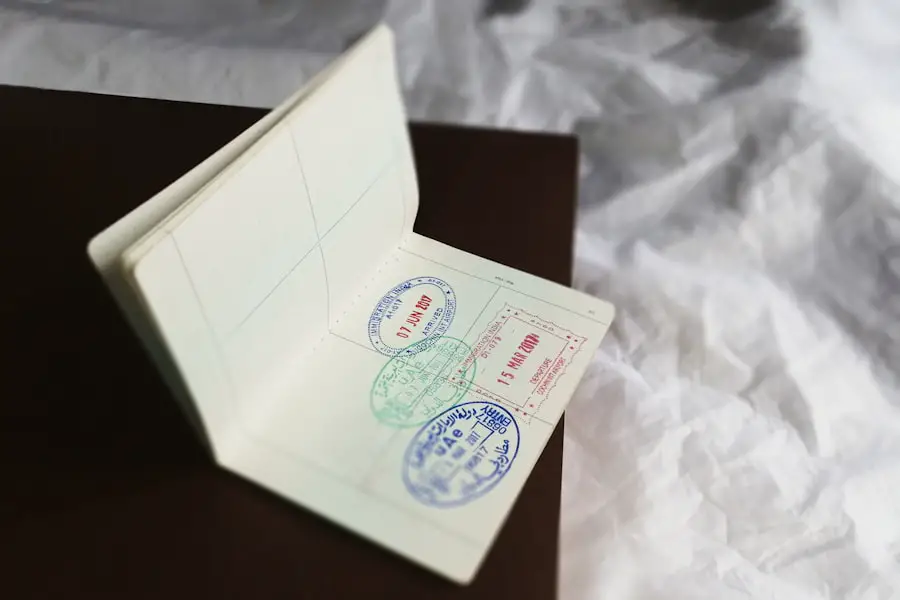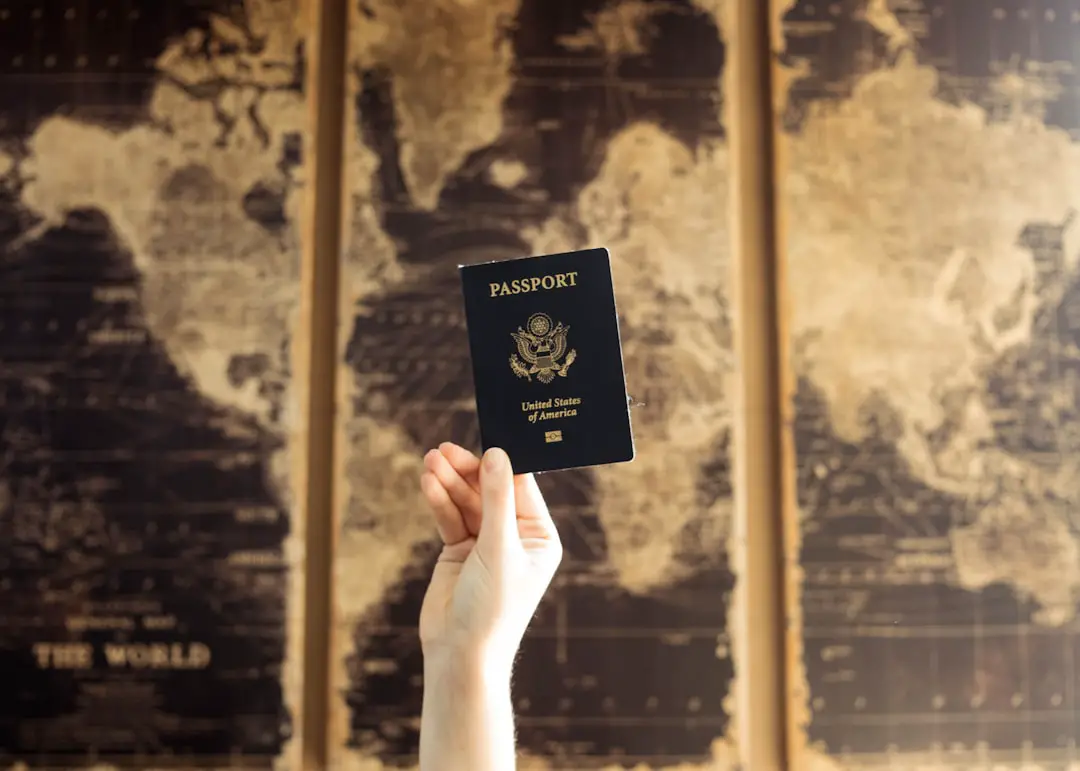When an individual is charged with a Driving Under the Influence (DUI) offense, the ramifications extend far beyond the immediate legal penalties. The consequences can ripple through various aspects of life, including employment opportunities, personal relationships, and even international travel. A DUI conviction often results in hefty fines, mandatory alcohol education programs, and potential jail time.
However, the long-term implications can be even more severe, particularly when it comes to travel. Many countries view a DUI as a serious offense, which can lead to entry denials or additional scrutiny at border control. Moreover, the stigma associated with a DUI can affect personal and professional relationships.
Friends and family may react negatively, and employers may hesitate to hire someone with a criminal record. This societal perception can lead to feelings of isolation and shame, further complicating the recovery process. Understanding these consequences is crucial for anyone facing a DUI charge, as it highlights the importance of addressing the issue proactively and seeking ways to mitigate its impact on future endeavors, especially when considering travel plans.
Key Takeaways
- Understanding the consequences of a DUI conviction on international travel is crucial for planning future trips.
- Researching entry requirements for each country is important to avoid being denied entry due to a DUI conviction.
- Obtaining a visa may be necessary for travel to certain countries, and the DUI conviction may impact the application process.
- Disclosing your DUI when applying for a visa or entering a country is essential to avoid legal issues and potential deportation.
- Understanding travel restrictions related to DUI convictions, such as being barred from entering certain countries, is important for planning travel.
Researching Entry Requirements
Country-Specific Entry Requirements
For instance, Canada is known for its stringent entry requirements; a DUI can result in a temporary ban from entering the country. In contrast, some countries may allow entry but require additional documentation or may subject travelers to heightened scrutiny at customs.
Factors Affecting Eligibility for Entry
In addition to understanding the general policies of your destination country, it is also important to consider the specific circumstances surrounding your DUI conviction. Factors such as the date of the offense, whether it was a misdemeanor or felony, and any subsequent legal actions taken can all influence your eligibility for entry.
Preparing for International Travel
Researching these nuances can help you prepare adequately and avoid unexpected complications during your travels.
Obtaining a Visa

For individuals with a DUI conviction seeking to travel internationally, obtaining a visa may be a necessary step in the process. Many countries require travelers with criminal records to apply for a visa rather than allowing entry on a visa waiver program. The visa application process often involves disclosing any criminal history, including DUIs.
This requirement can be daunting; however, it is crucial to approach it with honesty and transparency. When applying for a visa, it is advisable to provide comprehensive documentation that outlines your rehabilitation efforts since the DUI incident. This may include proof of completed alcohol education programs, letters of recommendation from employers or community leaders, and evidence of stable employment or community involvement.
Such documentation can help demonstrate that you have taken responsibility for your actions and are committed to making positive changes in your life. Additionally, some countries may offer options for individuals to apply for a waiver of inadmissibility based on their circumstances, allowing for potential entry despite a DUI conviction.
Disclosing Your DUI
| State | Requirement | Fines | License Suspension |
|---|---|---|---|
| California | Must disclose DUI on job applications | Up to 1,000 | 6 months to 1 year |
| Texas | Must disclose DUI on job applications | Up to 2,000 | 90 days to 2 years |
| New York | Must disclose DUI on job applications | Up to 1,000 | 6 months to 1 year |
Disclosing your DUI conviction during the visa application process or when entering a foreign country is a critical step that should not be overlooked. Many nations have strict laws regarding honesty in immigration matters; failing to disclose a criminal record can lead to severe consequences, including deportation or permanent bans from re-entering the country. It is essential to understand that while disclosing this information may seem intimidating, being forthright can often lead to more favorable outcomes.
When disclosing your DUI, it is beneficial to provide context surrounding the incident. This includes discussing any steps taken toward rehabilitation and how you have changed since the offense. For example, if you have completed counseling or treatment programs, mentioning these efforts can help paint a picture of personal growth and responsibility.
Additionally, being prepared to answer questions about your conviction during border control interviews can further demonstrate your commitment to moving forward positively.
Understanding Travel Restrictions
Travel restrictions for individuals with DUI convictions can vary significantly from one country to another. Some nations impose blanket bans on entry for those with certain types of criminal records, while others may allow entry under specific conditions or after a waiting period. For instance, Australia has strict regulations regarding DUIs; individuals with convictions may face difficulties obtaining visas or may be denied entry altogether.
It is also important to consider that travel restrictions may not only apply to international destinations but can also affect domestic travel within certain jurisdictions. Some states in the U.S. have laws that restrict individuals with DUIs from traveling freely or require them to report their whereabouts regularly.
Understanding these restrictions is vital for planning any travel itinerary and ensuring compliance with local laws.
Exploring Alternative Transportation

For those facing challenges related to travel due to a DUI conviction, exploring alternative transportation options can provide viable solutions. While air travel may be complicated by entry restrictions in certain countries, other forms of transportation may offer more flexibility. For example, traveling by train or bus within regions that do not require extensive background checks can be an effective way to navigate around restrictions.
Additionally, road trips within your home country can provide an opportunity for exploration without the complications associated with international travel. Utilizing rideshare services or public transportation can also alleviate concerns about driving under the influence while still allowing for mobility and access to various destinations. By considering these alternatives, individuals with DUIs can still enjoy travel experiences without compromising their legal standing.
Navigating Legal Issues
Navigating the legal landscape surrounding a DUI conviction requires careful consideration and understanding of both local and international laws. Each jurisdiction has its own set of regulations regarding DUIs, which can complicate matters when traveling abroad. For instance, some countries may classify DUIs differently than others; what constitutes a misdemeanor in one nation could be viewed as a felony in another.
Furthermore, legal issues may arise not only from the DUI itself but also from subsequent actions taken by law enforcement or immigration authorities. For example, if an individual is arrested for another offense while traveling abroad, their prior DUI could be brought up during legal proceedings, potentially exacerbating their situation. Therefore, it is crucial for individuals with DUIs to remain informed about their rights and responsibilities while traveling and to understand how their past convictions may impact their current legal standing.
Seeking Legal Counsel
Given the complexities surrounding DUIs and international travel, seeking legal counsel is often a prudent step for individuals looking to navigate these challenges effectively. An attorney specializing in immigration law or criminal defense can provide invaluable guidance on how best to approach visa applications and entry requirements based on individual circumstances. They can help clarify any ambiguities regarding disclosure requirements and assist in preparing necessary documentation that demonstrates rehabilitation efforts.
Moreover, legal counsel can offer insights into potential waivers or appeals processes that may be available for those facing travel restrictions due to DUIs. Understanding these options can empower individuals to take proactive steps toward regaining their ability to travel freely while ensuring compliance with all legal obligations. Ultimately, having knowledgeable legal support can make a significant difference in successfully navigating the complexities associated with DUIs and international travel.
If you are wondering if you can travel to Europe with a DUI, you may want to check out this article on taketravelinfo.com for more information. It is important to be informed about the rules and regulations regarding traveling with a DUI conviction. Understanding the implications can help you plan your trip accordingly and avoid any potential issues during your travels.
FAQs
Can you travel to Europe with a DUI?
Yes, it is possible to travel to Europe with a DUI, but it may depend on the specific country’s entry requirements and the severity of the offense.
Do all European countries have the same entry requirements for individuals with a DUI?
No, each European country has its own entry requirements, and some may be more lenient than others when it comes to individuals with a DUI.
What are some common entry requirements for individuals with a DUI traveling to Europe?
Common entry requirements for individuals with a DUI traveling to Europe may include a certain amount of time passed since the offense, a clean criminal record aside from the DUI, and a valid reason for travel.
Are there any countries in Europe that do not allow individuals with a DUI to enter?
Yes, some countries in Europe may have strict entry requirements for individuals with a DUI and may deny entry based on the offense.
What should individuals with a DUI do before traveling to Europe?
Individuals with a DUI should research the entry requirements of the specific European countries they plan to visit and may consider seeking legal advice or consulting with the embassy or consulate of those countries.

1 thought on “Traveling to Europe with a DUI: What You Need to Know”